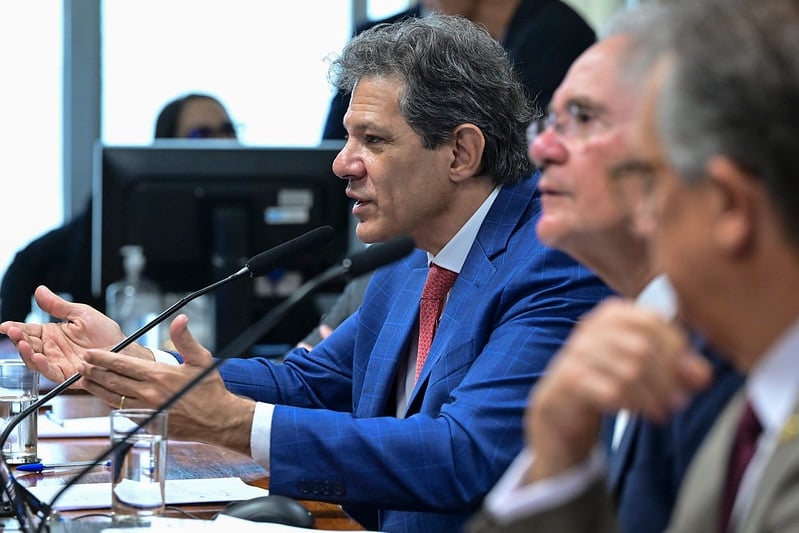Haddad advocates reviewing fintech taxation and promises a 'tougher fight' with betting companies

Finance Minister Fernando Haddad demanded on Tuesday, the 14th, that the National Congress resume the debate on the taxation and regulation of fintechs and reinforced the need for greater control over betting . The statements were made during a public hearing in the Senate Economic Affairs Committee, which discussed the proposed income tax exemption for those earning up to R$5,000 per month.
Haddad once again advocated that traditional financial institutions and fintechs be treated equally by the tax authorities, criticizing the current taxation model. "I don't understand a fintech greater than a bank paying less tax” , said the minister.
The Finance Minister noted that in August, the Federal Revenue Service began classifying fintechs as financial institutions, expanding its oversight powers over these companies. The change occurred after Federal Revenue operations identified evidence of money laundering involving some of these platforms with the PCC .
Taxation of fintechs was included in the provisional measure alternative to the IOF increase, which also provided for an increase in the CSLL tax on these companies, from 9% to 15%. The proposal, however, lost its validity without being voted on by the Chamber of Deputies.
In addition to fintechs , Haddad devoted much of his response to online betting houses, one of the main points of the rejected MP. The minister said the government has tools to respond if the sector continues to resist paying taxes. "We have the technology today to, if this power struggle continues, move into a more decisive confrontation with the sector," he stated.
Haddad described the betting companies ' actions in Congress as "disastrous" and stated that the government could restrict their operations if they fail to comply with their tax obligations. " It's not about demonizing them, but about demanding that those who should make their contributions pay. "
The minister also argued that sectors that have negative effects on society, such as beverages, cigarettes, and gambling, are heavily taxed in several countries. "No one thinks it's unfair to overtax cigarettes or beverages. Brazil is even timid about this."
Haddad estimated that the rejected provisional measure could generate up to R$20 billion in revenue in 2026. According to him, the rejection of the text poses challenges for the government in finalizing next year's budget.
With President Lula (Workers' Party) back in Brazil, Haddad stated that he will meet with him and congressional leaders to seek alternative tax relief. The meeting is scheduled for Wednesday the 15th. "We will seek alternatives. Taxing billionaires, banks, and gambling companies is only unfair in the minds of people who are uninformed about what is happening in Brazil," he concluded.
CartaCapital





